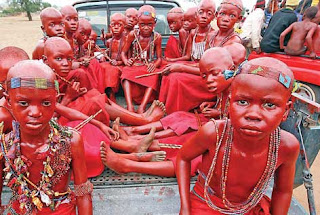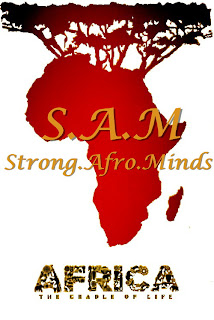The Wisdom of African
I have been travelling been doing a lot of travelling lately and it has
given me the opportunity to into contact with an array of people. My recent
travels to Lusikisiki have had a great impact on my life. I’m a facilitator
which involves some teaching yet this time around I was the one schooled. This particular
group consisted mainly of males in their late 40s to late 50s, who would be
considered as mature to elder in the African traditional sense. They were not
shy to relate their life experiences and impart nuggets of wisdom. One of their
gripes about the modern generation was that we never listen; we think we know
everything when we don’t. They said that as highly educated as we are, we lack
wisdom and that it is something that cannot be found between the pages of a
book. There is a Xhosa proverb that says “inyathi ibuzwa kwabaphambili” meaning
that one learns through asking, speaking to and listening to who’ve been there
already.
Taking into account what they told me and what I learnt from them I started
looking into wisdom and the attainment of wisdom. Confucius, the great Chinese
philosopher and teacher, stated that there are three ways we learn wisdom. The
first is through reflection, which is the noblest way; the second is through
imitation, which is the easiest and the third is through experience, which is
the bitterest.
Self-reflection is our capacity for examining our thoughts and actions,
for exercising introspection and willingness to learn more about our
fundamental nature, purpose and essence. This invariably leads to inquiry into
the human condition and the essence of humankind as a whole. One of the main
catalysts for self-reflection is being silent. Only in silence can we be able to
examine ourselves and find out who we are and what our purpose is in life. Our
inner voice is one of the key elements in knowing ourselves. It is constantly
there giving us hints, guiding us and we have to be silent to hear it because
it is merely a whisper. Our modern lifestyle makes self-reflection a challenge
because we have numerous gadgets that keep us constantly occupied. Self-knowledge
is one of the most important journeys in a human’s life. We are starved of
silence and therefore truly of knowing ourselves.
In comparing our modern world with traditional life in African, it is
evident that we have lost a lot in the name of progress. African customs and
traditions encourage self-reflection as well as African languages and
traditional education system. African languages are full of riddles, proverbs,
parables and folk tales that have hidden meanings and form part of the traditional
African education system. African parables and proverbs are a symbolic language
in which the discovery of the meaning of the words and phrases demands a
penetration of the mind of the speaker. The Yoruba say that proverbs are horses
we ride to search for the truth and Igbo say that they are the palm oil with
which words are eaten; meaning that the use and understanding of proverbs marks
the adult usage and maturity in an African language. Below are a few African
proverbs that illustrate this.
- "A log in the river will never be a crocodile." Kikuyu - This Kikuyu Proverb was heard near Mount Kenya in Nyeri in 1989 during preparations for a marriage. A man from Meru wanted to marry a Kikuyu woman from Nyeri. He had a criminal background and came from a hot-tempered family. The Kikuyu elders did not want to tell the woman directly not to marry him because he had a bad character that probably could not change, but wanted to warn her indirectly. So they used this Kikuyu proverb. The message to the woman is this: “It is your choice, your responsibility. But don’t say that the Kikuyu elders gave you permission to marry this man. Don’t say the elders gave you the go ahead.”
- “The one with many uncles slept hungry.” Maragoli - This proverb is said to those who boost they possess almost everything on earth, but find themselves, in one way or the other, lacking at least something in life.
- “The woman finds an empty house, she doesn’t find riches.” - The meaning of the proverb is that the woman who goes to live with her husband for the first time will find an empty house and together they will work hand in hand to build wealth. The English equivalent is behind every successful man there is a woman.
- “Amagezi muro bagwisha nzweri.” (Hema) – “Wisdom is like fire. People take it from others.” - The Bahema, like other African ethnic groups, used proverbs abundantly. It was a sign of their maturity and wisdom. Apart from proverbs, the Bahema used other means to express themselves such as signs with the eyes, heads and hands. There was a strong competition in transmitting messages through proverbs to show one’s wisdom. Young people were trained to use proverbs to convince other people when discussions arose. There were different categories of activities in which proverbs were used: hunting, fishing, pastoral activities, cultivating, healing (the medicine man or omufumu), etc. The royal palace was the place where almost everything was said in proverbs.
In this Hema proverb the word amagezi contains
a wide range of meanings: Apart from wisdom or intelligence, the Bahema use it
to signify astuteness, shrewdness, etc. Therefore the first meaning of amagezi is
hidden in the way somebody speaks. The person who has amagezi is
capable of saying the most important things in just few words using rich
comparisons from the natural world. The second meaning of amagezi is
being capable of understanding, analyzing and attaining objectives within a short
time.
The Bahema consider amagezi as the key to success in life. Nobody is the custodian of amagezi. It is learned from others. In the traditional society people were not accustomed to have match boxes. Fire was produced from a special piece of wood. When somebody kept it, other family members could come in the morning to take it freely. Nobody could refuse to give fire because it was used for cooking, warming waters and chasing lions or other wild animals which came to attack the herd. Fire was also considered as the symbol of power. It was burning in the king's palace and in the villages. People sat around it during the night to dance or to discuss issues. The Bahema had different ways of keeping fire under heavy rains and when crossing a river by swimming. Fire was kept under ashes and under the burning dried dung of cows. The word nzweri in Hema means the neighbour, the relative or a close member of the community.
The Bahema consider amagezi as the key to success in life. Nobody is the custodian of amagezi. It is learned from others. In the traditional society people were not accustomed to have match boxes. Fire was produced from a special piece of wood. When somebody kept it, other family members could come in the morning to take it freely. Nobody could refuse to give fire because it was used for cooking, warming waters and chasing lions or other wild animals which came to attack the herd. Fire was also considered as the symbol of power. It was burning in the king's palace and in the villages. People sat around it during the night to dance or to discuss issues. The Bahema had different ways of keeping fire under heavy rains and when crossing a river by swimming. Fire was kept under ashes and under the burning dried dung of cows. The word nzweri in Hema means the neighbour, the relative or a close member of the community.
One of the most effective way humans learn behaviour is through imitation.
It is how social norms and rules are learnt. Elders and extended family in
African society are crucial in the education of the next generation. This education
not only occurs in words but also in deeds. The proverb “it takes a village to
raise a child” is based on this principle. In an African community every mother
is your mother, every father your father, and every elder your elder. Africans
have a deep and ingrained respect for elders even when one cannot find something
to admire in an old man, one doesn’t forget that the elder’s grey hairs have
earned him the right to courtesy and politeness. This respect for elders starts
within one’s immediate family.
In these modern times, extended family no longer shares the same roof as
immediate family. This has led to children being raised by complete strangers
(hired help) due to the mother and father’s work schedule. Unfortunately parents
have to work to be able to provide for their families but this has meant that their
children grow up wanting to be like the people they see on the television.
The third teacher of wisdom is experience and as Confucius puts it, it
is the bitterest way of learning wisdom. Because experience is such a tough
teacher, one needs life skills and tools to be able to navigate through life.
The traditional African education system imparted these tools from an early
age. Every task or job performed while growing up always contained an element
of education and preparation for the next stage of life, whether it be
adulthood, marriage or parenthood.
In trying to deal with their problems the youth today tend to turn to
drugs, alcohol and other activities to numb their feelings and ignore them. If we
are to progress, we need to look back at what worked in traditional societies
and adapt those to fit the world we live in.
In Canada there is a camp for teenagers called teen journey. This camp
has adapted rite of passage ceremony for teenagers to help them find out who
they are. Their camps not only include volunteers who are peers but also a
panel of elders that help these teenagers during this transition. The success of
the program is echoed by both the parents and the teenagers. This just highlights the need in our world for solutions like these that help this generation using adapted ideas of the past generation.





Comments